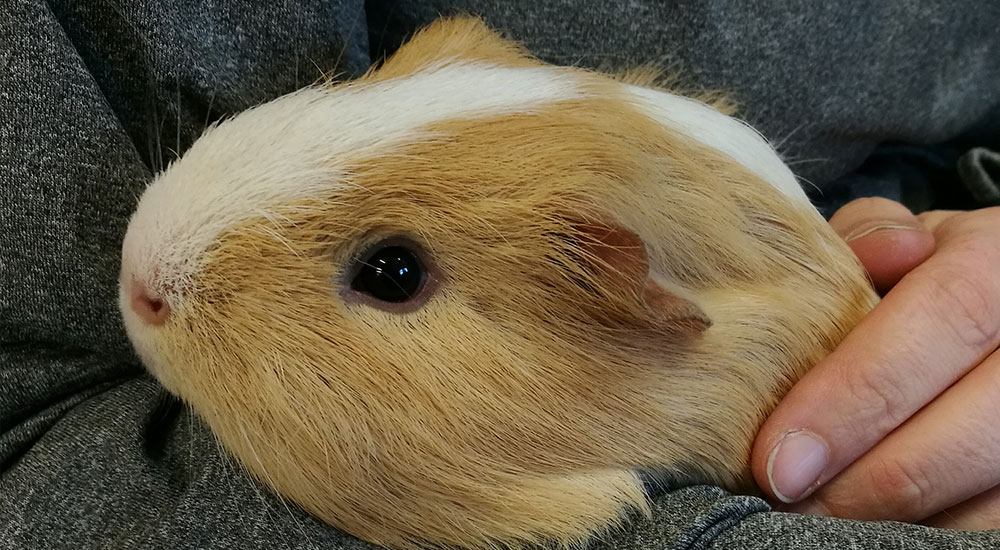
Guinea Pig Helpline
Available 24/7 for URGENT enquiries.
For all non-urgent queries, such as holiday boarding, adoption, care classes, and care advice queries where our website does not answer your question, please only call during the day.

Cavy Corner has been rescuing, rehabilitating and re-homing guinea pigs since 2008

On the 10th of March 2021, my lovely husband Winston, co-founder of Cavy Corner died suddenly aged 61.
Winston was a kind and generous man who adored the piggies.
He saved so many guineas with his skill and care. And spent many hundreds of hours advising owners on the Cavy Corner Helpline.
Winston was brave beyond words. He was my soulmate.
The world will be a sadder place without him and my heart is truly broken.
Sue Tate, Founder
Please bear with us whilst we restore our website following a cyber attack. If you wish to make a donation, please contact us.
Cavy Corner Guinea Sanctuary was established by Sue and Winston in the summer of 2008 as a Charitable Trust and was the result of a childhood love of cavies (another name for guinea pigs). It started with two guineas Clover and GP who were bought as pets. They quickly became devoted cavy slaves and discovered just how many guinea pigs there are who need a safe loving home and so the sanctuary was born.
In the summer of 2014 Cavy Corner became a registered charity, in December 2014 we won Community Group of the Year and in December 2016 we were awarded the prize for the Most Inspiring Organisation of the Year (Doncaster CVS awards event).
Cavy Corner rescues abused, abandoned, neglected and unwanted guinea pigs. The reasons for piggies coming to Cavy Corner vary from giving homes to guineas when changes in circumstances mean a family can no longer keep their cavy to large scale rescues.
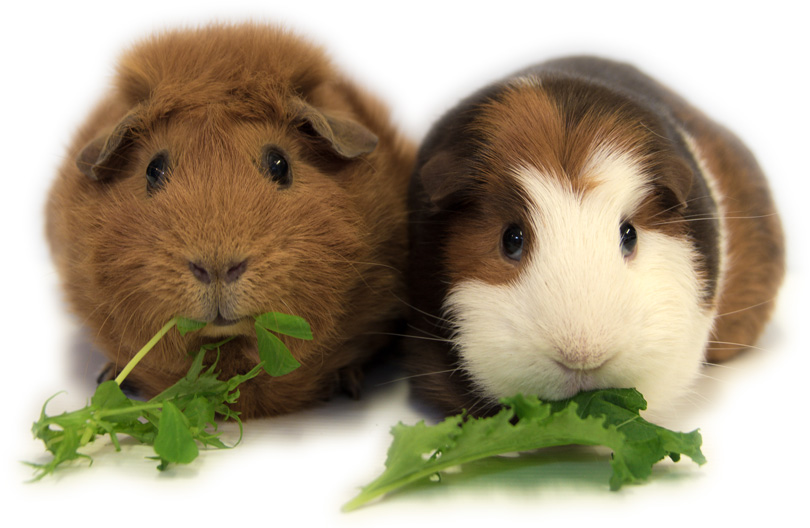
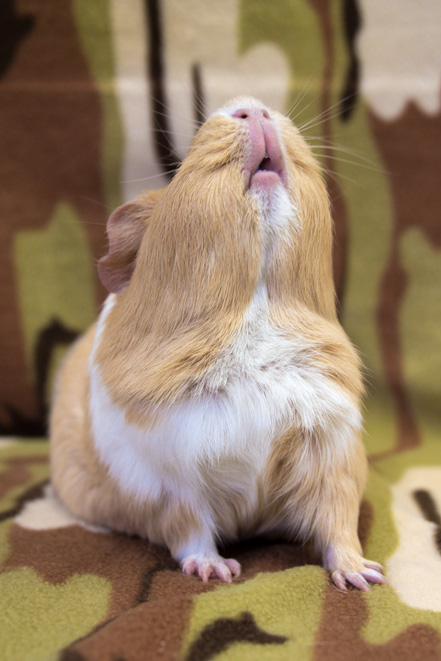
Regardless of the circumstances, the guineas in our care are very much loved and cherished. If necessary, we nurse them back to good health and then find the perfect family for them or provide them with a loving forever home here.
Cavy Corner is run entirely by a team of dedicated volunteers and has no paid staff. Cage cleaning, feeding, cleaning water bottles, nail clipping, grooming and cuddling the guineas are just some of the daily routine duties.
There are so many other things that keep us busy at Cavy Corner too. We spend a lot of time giving advice and answering queries that come through to our Guinea Helpline, as well as bonding piggies, making home visits, running care classes for potential new owners and arranging adoptions to find piggies their forever homes.
We rely on fundraising to ensure that Cavy Corner has the resources to ensure that the guineas get VIP treatment. Funds are raised at town galas and village fetes as well as through our own events like the Pignic and Small and Furry Fun Pet Shows. We have also made Pets as Therapy visits to residential homes and educational visits to schools and community groups such as Brownies and Scouts.
Everybody who helps Cavy Corner is ‘truly devoted to guinea pigs’ – if you are too and want to find out more please contact us to see how you can get involved!

Available 24/7 for URGENT enquiries.
For all non-urgent queries, such as holiday boarding, adoption, care classes, and care advice queries where our website does not answer your question, please only call during the day.
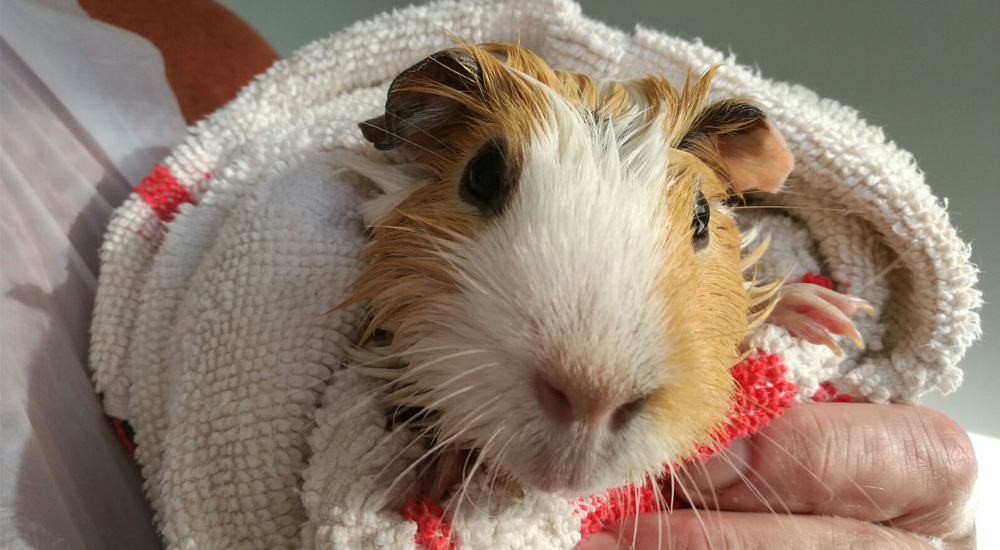
We handle rescues or surrenders with care and sensitivity. If you are thinking of surrendering your guinea pig(s) or are concerned about neglect, please contact us on the Guinea Pig Help & Advice Line.
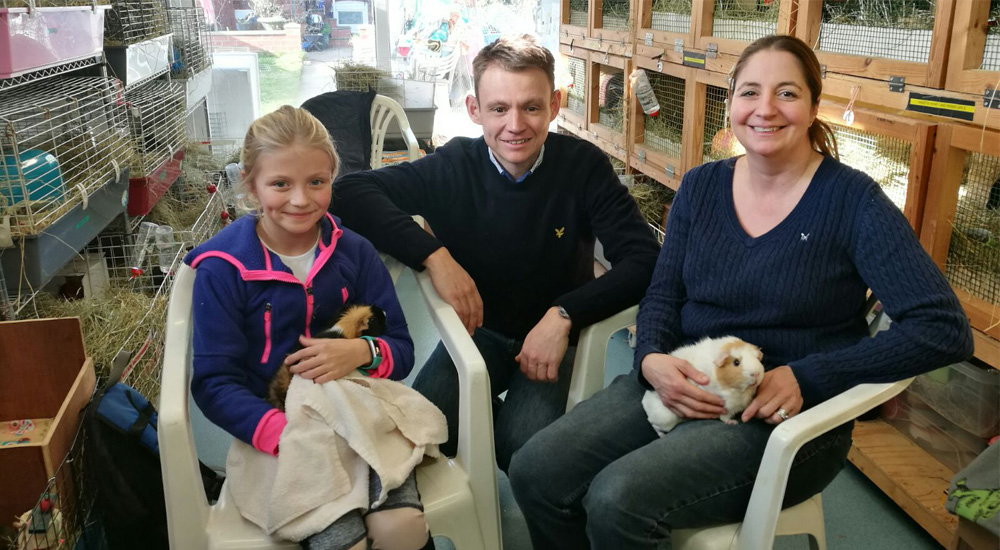
Cavy Corner has rescued well over a thousand guineas and successfully re-homed many hundreds into 5-star, loving homes with forever families. We only adopt recovered guineas to homes where they will be cherished so we make no apologies that our adoption process is quite strict!
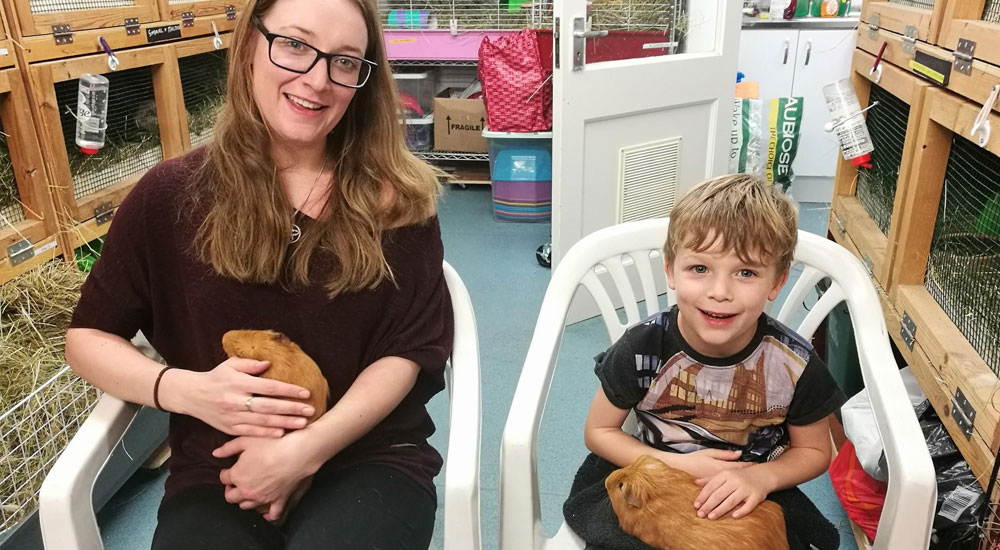
We run care classes for those thinking about adopting a guinea pig, and as part of our adoption process for new owners. The class covers things such as how to house your piggies, what to feed them, the importance of fresh hay, handling piggies, basic health checks amongst other things.
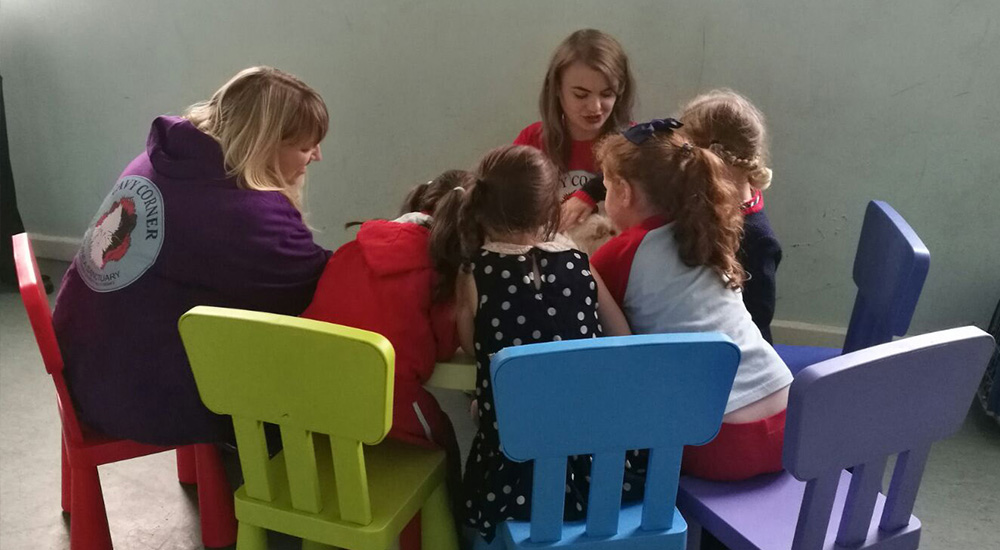
Cavy Corner has visited schools and community groups to give interactive, educational talks about guinea pigs, as well as offering the opportunity to meet a guinea.
If this is something you would be interested in, please contact us to find out more.
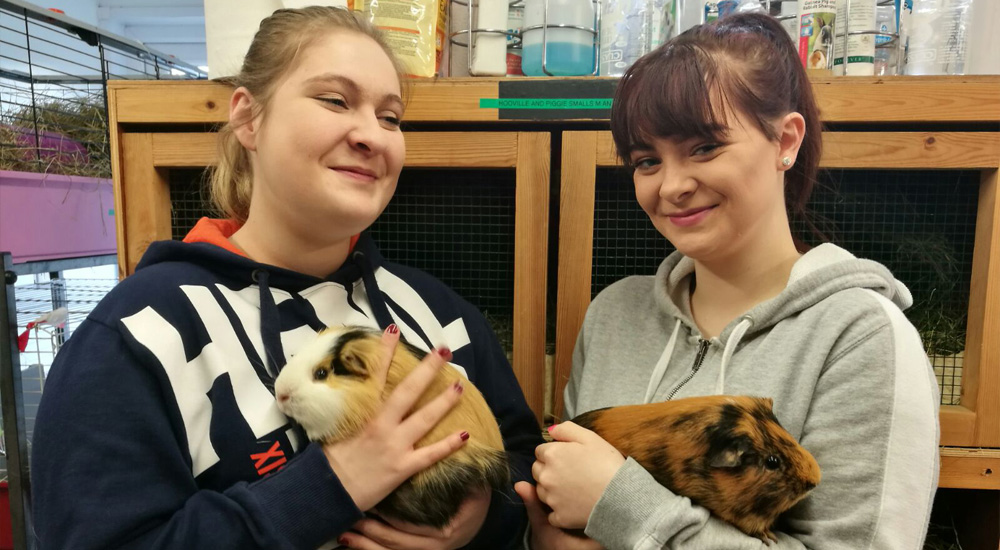
If you’re going away and want to make sure that your piggie is well-looked after, we offer holiday boarding at the price of £4 per night per piggie. You can rest assured they will get 5-star treatment by knowledgeable folk who love guineas as much as you do!
Please contact us for more information.
Like our Facebook page for regular updates, pictures, and advice. Sue will also respond to Facebook Messages for non-urgent queries.
https://facebook.com/cavycornerEmail should only be used if your query is not urgent or you have already been in contact with Sue.
sue@cavycorner.org
Below are some of the questions that we are asked frequently. Click on the question to expand and reveal the answer.
If your question is not answered below, please feel free to contact us.
In order to keep the animals secure and to prevent animals being dumped without notice where they may not be found for hours, we do not publish our address. To give the animals routine and enable volunteers to work safely and free from interruption, we are not open to the general public for unplanned visits.
Appointments can be made for adoptions, Guinea Care Classes and visits by arrangement.
We make no apologies that it is quite strict! We make a friendly home visit which will help us match the right guinea(s) to you. We only ever re-home to 5 star loving homes where guineas will be cherished and live as part of the family; it’s not about how large your home is or the size of your garden! Specifically we only adopt where guineas will have an indoor homes and have a no breeding rule.
For more information on the adoption process, please click here.
The Guinea Helpline is primarily to seek urgent advice for your guinea, report neglect or rescue cases, or surrender your guineas.
There is a range of information on general guinea pig care on our care advice section including videos on nail-clipping and syringe feeding. If this doesn’t answer your question or you are still unsure, please don’t hesitate to contact us on the helpline where we can also give advice and information on guinea care and well being, bonding guineas, suitable cages, holiday boarding, offer empathy and practical advice following the loss of a guinea, and answer queries from guinea keepers new or experienced. If we can help, we will!
We are currently recruiting new volunteers. Please read the information on our Volunteering section first, and then telephone for an informal chat if you are still interested so we can explain the roles in more detail and arrange a visit. We usually say that volunteers should be at least 12 years old.
There are many benefits to volunteering at Cavy Corner! These include learning how to care for the animals, having contact with guineas, learning useful skills whilst having fun, building confidence, meeting new people and making a new circle of friends. It will also give you valuable work experience that you can put on your CV and Cavy Corner could provide you with a reference.
Please note: No one gets paid.
We do consider volunteers who wish to work a set amount of time towards their Duke of Edinburgh award. Please read the information on our Volunteering section first, and then telephone for an informal chat if you are still interested so we can explain the roles in more detail and arrange a visit.
There are many ways to help us! Financially you could send a donation to the address on the contact us section or via the donate button at the top of this page. You could also attend or host a fundraising event, donate an item for raffle/tombola, gift essential and useful supplies such as food, fresh veg, kitchen rolls, hand sanitizer, towels etc. We are also currently recruiting volunteers to help us on a more regular basis.